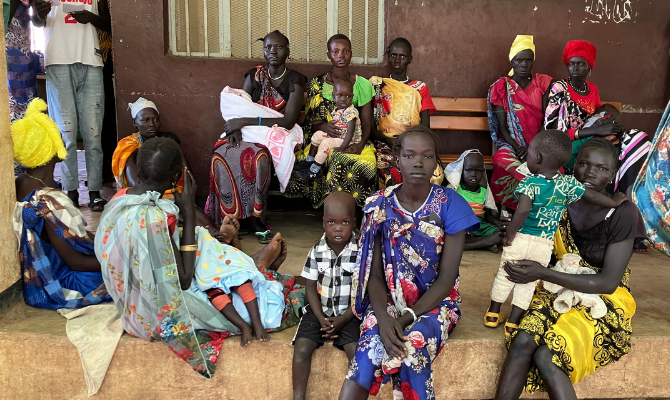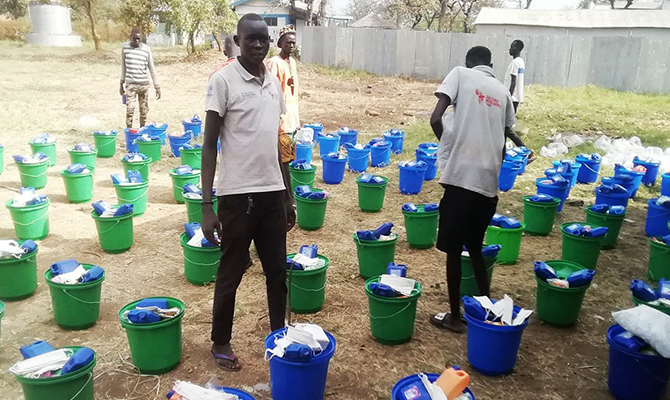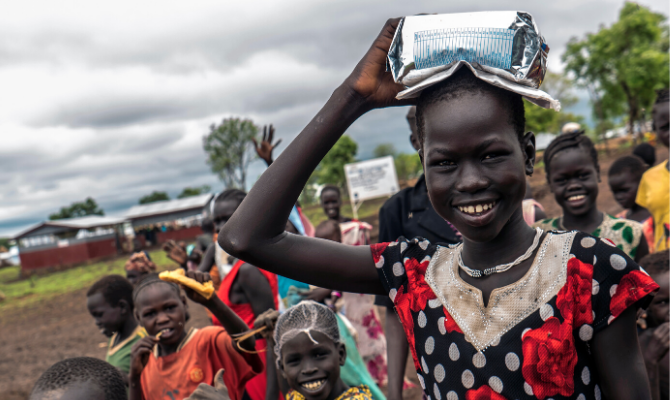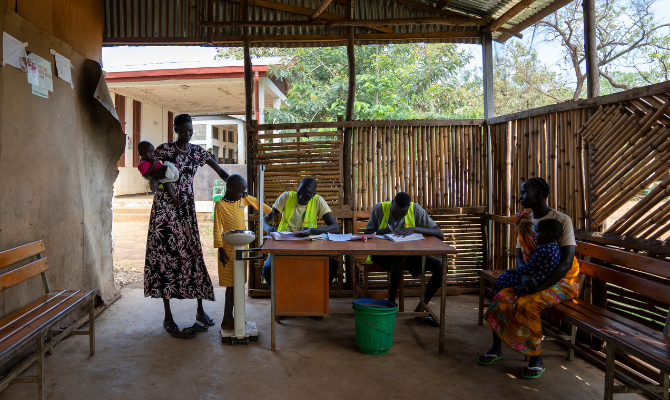“The living conditions in the refugee camps are very difficult, particularly for lack of basic resources. We are talking about essential, basic needs: from food to hygiene, to clothing, to the medicine that takes away fever or enables one to overcome an attack of malaria. The refugee population basically lives on aid from UN agencies and NGOs working in the field. They try to offer basic health care, from child care to vaccination and childbirth assistance. Survival in the camps is really hard”.
These are the words used by Federico Calia, expert in public health with years of experience in the field with CUAMM, to describe the living conditions of the South Sudanese refugees in Gambella, from which he recently returned after a mission to monitor CUAMM interventions in the area, including the project “Emergency support to equitable and safe access to quality health and basic sanitary items in Tigray and in Gambella regions”, supported by the European Union through ECHO, the European Civil Protection and Humanitarian Aid Operations, and implemented in collaboration with VIS.
The project involves two different areas of Ethiopia, in continuity with other previous or still ongoing interventions: on the one hand, the Gambella region, in particular the Jewi refugee camp and Zone A of the Nguenyyiel refugee camp. Doctors with Africa CUAMM aims at guaranteeing primary health services at the health facilities level, the supply of medicines and essential equipment, in particular for the health post in Zone A; it supports the training of health workers and community activists, together with raising the awareness of the population; it strengthens the emergency referral system within the camps and to the Gambella general hospital.
“Compared to the previous missions, carried out in November 2021 and February 2022, I have seen a significant improvement both in the quality of the services provided in the health posts, and in the increase in activities aimed at the beneficiaries who have access to our services,” continues Federico. “I have noticed a greater attention by the midwives to the educational and preventive component during pre- and post-natal visits, and to the compilation of medical and birth records. The hygiene, order and cleanliness of the delivery rooms and adjacent rooms have also been improved. These improvements were also facilitated by a more careful selection of health personnel”.
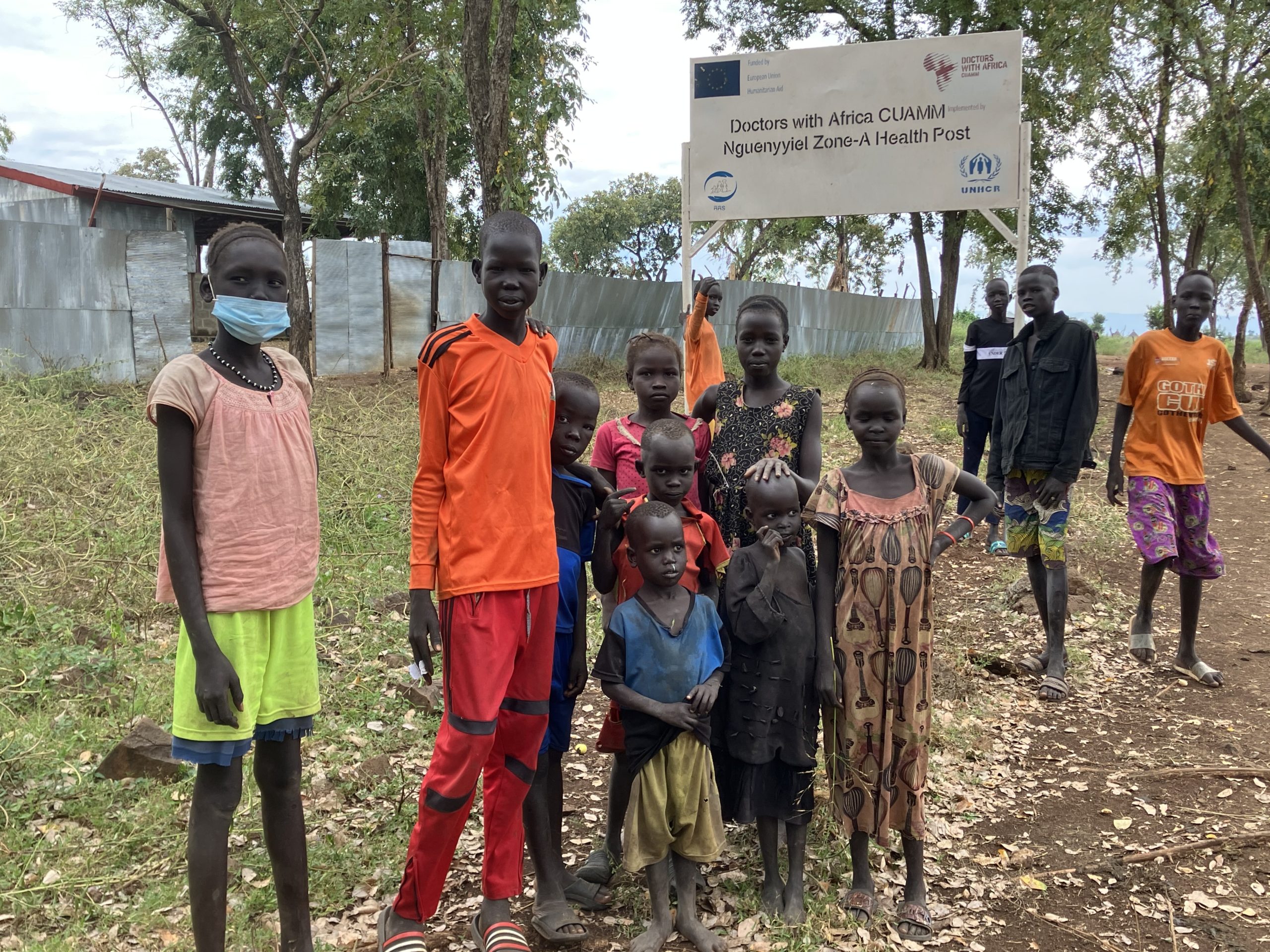
Thanks to EU funding, the health post and ambulatory in Zone A of the Nguenyyiel camp, home to a total of 110,000 refugees, has been operational again since last November. In just one month, it provided health services to 1,991 people (1,919 outpatient visits and 72 antenatal visits) and will be completely renovated as of January.
“Overall, I would say a positive balance sheet, even though there remains much room for improvement in the quality of our work and the services we offer the refugee population, especially for maternal and child health, for example, increasing vaccination coverage through the active search for unvaccinated or partially vaccinated children; activating psycho-physical growth checks for children in the first 1,000 days of life; the active identification of pregnant women in order to start antenatal check-ups as early as possible and to promote assisted childbirth; the improvement of clinical data recording and data collection; the strengthening of community interventions through efficient organisation of the work of community agents (COAs)’.
The project then involves the Tigray region, which has been affected over the past two years by a violent conflict between the Tigray People’s Liberation Front (Tplf) and the central government, which now seems to have subsided after the peace agreements of 2 November 2022. The clashes have exhausted the population causing thousands of casualties, about 2 million internally displaced persons (IDPs) and preventing access to aid to cope with the lack of food, water, medicines, basic necessities and fuel. CUAMM’s intervention focuses on the areas of Mekelle, Adwa and Adigrat to support three health facilities, providing medicines, supporting the treatment and referral of the sick, training local staff and raising awareness in the communities, together with the distribution of hygiene kits. From the start of the project (May 2002) to December 2022, 17,809 outpatient visits have been carried out.
“Tigray has enormous humanitarian needs. Many displaced individuals urgently require medical care and food aid, and the disruption of vital services has led to increasing demands, notably in the areas of nutrition and health – tells Yonas Tadesse, the project manager in Tigray -. Due to the prolonged blackout, it was difficult for local personnel to communicate with head office, causing a delay in the timely flow of information. Humanitarian access by road and air to Tigray was also disrupted, chellenging the implementation of the intervention. Mothers and children have suffered from the lack of maternal and child health (MCH) services, including referral to the proper facility, as health workers have not received salaries for the last two years.
Nevertheless, thank to the European Union support, from May to December CUAMM has provided capacity-building training for 173 health care workers, 96 men and 77 women, at Mekelle, Adigrat, and Adwa. CUAMM has also re-established the MCH clinic at St. Merry HC in Edaga Hamus and assisted 70 deliveries, as well as performing three cesarian sections for maternal complications at Kidane Mihirt Hospital. 57 women and children were also referred to higher-level facilities with specialized services. There is a great need but also many opportunities to change things“.
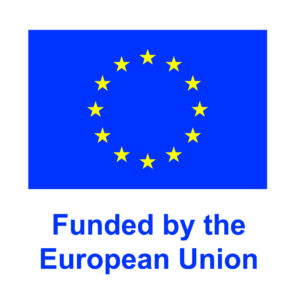
This document covers humanitarian aid activities implemented with the financial assistance of the European Union. The views expressed herein should not be taken, in any way, to reflect the official opinion of the European Union, and the European Commission is not responsible for any use that may be made of the information it contains.

